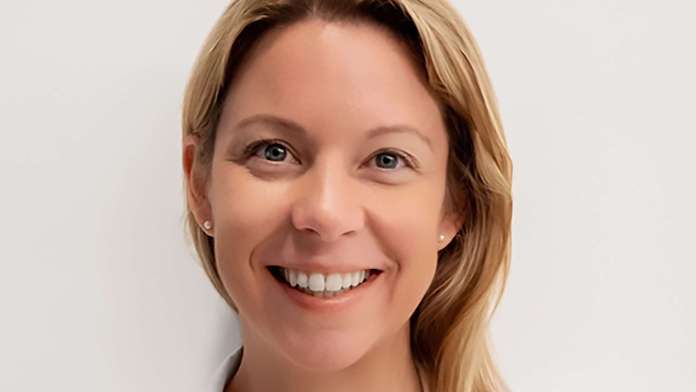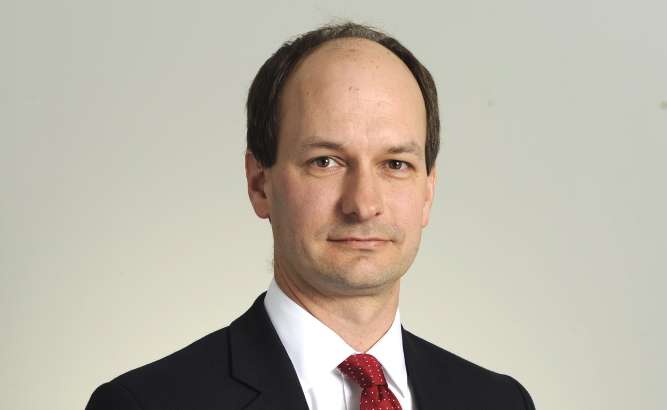Kry is at the forefront of the digital transformation taking place in health economies across Europe but the Swedish telehealth provider, launched in the UK as Livi, is not out to disrupt. Global medical director Monika Gratzke talks to Maria Davies about the company’s ambition to improve access while being a trusted partner in the healthcare ecosystem
Swedish telehealth provider Kry – Livi as it is known in the UK and France – is fast emerging as one of the key players in the equally fast-paced digital health market. Boosted by the pandemic, it has reported a three-fold increase in consultations across its five core geographies since the start of 2020. It’s a growth story which hasn’t gone unnoticed by investors. The company raised €262m in an oversubscribed Series D last April led by Canadian Pension Plan Improvement Board (CCP Investments) and Fidelity Management & Research, with participation from a number of existing VC investors and Ontario Teachers’ Pension Plan.
Plans to scale up across its core markets in Sweden, Norway, Germany, France and the UK are already well underway, with the launch of additional services for the management of long-term conditions and mental health. But as health economies take a tentative step into a post-pandemic world, it is becoming clear that digital solutions alone are no panacea for the age-old challenges of increased demand, rising costs and workforce shortages.
‘We have very different healthcare systems in Europe, but what they all have in common is a shortage of clinicians facing an increasing number of patients, especially in mental health. And we need to make sure that more patients get faster access to healthcare. This is where we focus as a company – where the need is and where we can add value in the system,’ says Kry’s global medical director Monika Gratzke.
According to Gratzke, digital disruption was never part of the company’s playbook.
‘In Europe, we have a really good standard of public healthcare and it’s always been our aim to work with existing systems,’ she tells HM. ‘What we need to do is fill the gaps. So, for us it is important not to be seen as a competitor, but to integrate into existing systems to support stakeholders maintain the excellent work they are already doing.’
Partnership strategy
The company set out its position as a partner as early as March 2020 when it launched Care Connect – a free consultation platform for clinicians to enable them to continue seeing patients remotely as lockdown orders were imposed.
In the UK, it reinforced this partnership approach with the acquisition of patient engagement platform MJog in 2020. Already used by more than 70% of GPs, the platform enables GPs to communicate with patients via a range of messaging options from one-to-one appointment reminders to mass flu campaigns.
‘By acquiring this tool, we made it very clear that we do not want to build something of our own. We want something that is already used by clinicians and approved by the NHS. We don’t want to build another tool to compete with the existing one, but to merge the tools they need to be more effective,’ says Gratzke.
Currently, Kry’s UK operation Livi has two main strands: partnerships with NHS bodies to provide additional capacity through remote GP consultations alongside technical support and a patient-initiated fee-paying private service. Livi has also entered into partnership with CCGs in Sussex, Humberside and Derbyshire to offer triage services for patients calling NHS 111.
‘This is a good example of how digital services can be used to support the existing system, taking pressure off of urgent care services as well as helping to reduce costs,’ says Gratzke.
Hybrid models
In Sweden, where Kry launched in 2015, the company operates a true hybrid model which is now fully embedded in the healthcare system. It opened its first physical clinic there in 2018, but its 2020 merger with Helsa – one of Sweden’s largest healthcare providers – greatly expanded its capability as an integrated digital and physical primary care provider, adding 14 clinics across five regions to its portfolio. There are no plans to try and replicate this approach in the UK but Gratzke says the company always explores opportunities for cross market development.
One interesting area of work is bringing digital solutions to bear in secondary care, in particular the journey between outpatient and inpatient services. Kry is currently looking at how it can help smooth that journey by partnering with hospitals and providing software tools to enable clinicians to speed up referrals and retain patient data.
The German government has allocated €4bn over the next five years for the digitalisation of hospitals and inpatient treatment, but Gratzke says it is a model which could be adapted and rolled out in other geographies.
‘There is a huge opportunity to do this in Germany, which is why we are starting there, but if it works and we think it can add value in France or the UK, it is absolutely something we would roll out to other markets,’ she says. ‘But what we have learned so far is that just because something works in one market, does not mean it will work in another. It very much depends on the legal framework and how systems are organised so we have to be flexible and adapt.’
However, one challenge shared by all geographies in which Kry operates is workforce and in particular what Gratzke describes as ‘medical deserts’ – areas which are unable to attract a sufficient number of clinicians to serve the local population. And while not a panacea, this is an area potentially where digital services could demonstrate significant value.
According to Gratzke, there is a huge imbalance in access to medical care between rural areas and cities.
‘This is a problem in the UK and probably even more of a problem in France and Sweden where we have huge rural areas where patients have to travel long distances to see a GP. And this problem is set to get even worse in the coming decades as there is less incentive for younger GPs to move to those areas. The greatest value we have is where we can provide services to patients who wouldn’t otherwise have access,’ she says.
Clearly, this is not just confined to general practice. The crisis in mental health provision was well underway before the pandemic, and this has been a key area of focus for digital health. Doctor Care Anywhere and HealthHero are among the virtual GP providers to launch mental health propositions during the last year.
In Sweden, Kry has an established mental health division, providing both face-to-face and internet-based services. In the UK, Livi launched its mental health offering earlier this year, providing an online therapy service offering CBT to private patients.
However, Gratzke believes that there will be further opportunities for digital provision to move beyond the solutions it has provided during the last two years of the pandemic.
‘What will happen now is that digital solutions will become more deeply embedded in chronic disease management as well as the treatment of more complex patients and inpatient treatment, especially that journey from outpatient to inpatient treatment. That will include data transfer, communication and all aspects of the patient journey,’ she says.
‘What Covid has proved is that digital works both as a business concept and from a medical perspective.Going forward, it won’t have the same boost it has had for the last two years, but I think it will stabilise and that digital solutions will become integrated on different levels of the healthcare system.’








 ©2024 All rights reserved LaingBuisson
©2024 All rights reserved LaingBuisson 


